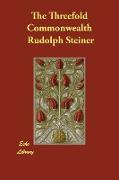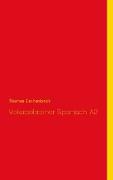- Start
- The Threefold Commonwealth
The Threefold Commonwealth
Angebote / Angebote:
Steiner (1861-1925) was an Austrian philosopher, social reformer, economist and esotericist. He initially gained recognition at the end of the 19th century as a literary critic, going on to publish a number of philosophical works including the Philosophy of Freedom (1894). Early in the 20th century he founded an esoteric spiritual movement named anthroposophy which had roots in German idealist philosophy and theosophy, and was also influenced by Goethean science and Rosicrucianism. In the first phase of this movement he sought a synthesis between science and spirituality, and in the second phase, beginning around 1907, he began working collaboratlively in a variety of artistic media, including drama and architecture, culminating in the building of the Goetheanum, a cultural centre to house all the arts. In the third phase, after WWI, Steiner worked to establish various practical endeavours such as biodynamic agriculture and anthroposophical medicine. A consistent thread that runs from his earliest philosophical work through to his later spiritual orientation is the goal of demonstrating there are no essential limits to human knowledge. In the social ferment of postwar Europe in 1919, Steiner turned his attention to reforming the basis of society in three fundamental, autonomous spheres: economic, political/rights, and cultural, and this work sets out his central ideas on the threefold nature of the social organism. Reprinted from the authorised English translation of 1922.
Folgt in ca. 5 Arbeitstagen




